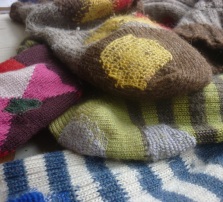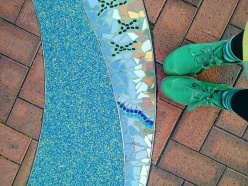
Lately, I’ve been thinking a lot about the ways in which we are hurt by the world, and about the ways in which we might heal from those hurts. We are hurt by the effects of racism, inequality, political disenfranchisement, sexism, rigid gender and sexual identities, the displacements of migration, ableism, and structures which often prioritise competition over cooperation, among others.
These are structural problems, but they affect us in deeply personal ways. Legacies of hurt come down to us through our families, at the same time as our experiences add new layers. For many people, involvement in activism can be deeply damaging, in part because sexism, racism, homophobia, and other structural inequalities don’t magically disappear within movements.
 Our movements need to be spaces of healing. Because we are up against vast forces, and we need to be as strong as possible. Because when we damage each other further people burn out and groups split and our work is undone. Because we need to show that there are alternatives, and they are viable and more beautiful than what currently exists.
Our movements need to be spaces of healing. Because we are up against vast forces, and we need to be as strong as possible. Because when we damage each other further people burn out and groups split and our work is undone. Because we need to show that there are alternatives, and they are viable and more beautiful than what currently exists.
For us to heal, for us to be strong, it takes work. While I was in Athens, I facilitated a short workshop on emotional labour. “Emotional labour” is often used to refer to the requirement that workers manage their feelings in particular ways while on the job (for example, smiling and looking happy even if they’re tired or annoyed), but emotional labour is also common in activism.
This takes a variety of forms, most of them hidden, and unequally shared. It might include smoothing over disagreements during a meeting; checking up on members of a group who miss events; welcoming newcomers; and meeting with people outside of events to negotiate tensions. Often, women take on more of this work, in the same way that women are still often expected to do more of other ‘caring work’ – cooking, cleaning, childcare, and so on – even when in movement spaces. In many spaces, race and class differences will also contribute to the inequality in who is expected to do emotional labour.
Several people at the workshop asked for more material on emotional labour, so I’ve gathered a few useful links here, in no particular order. This is far from a definitive collection! It’s just a starting point, with a mix of deeper theoretical discussion, specific suggestions, and different perspectives. (I also don’t necessarily agree with every single point in each of these sources.) Please feel free to add helpful sources in the comments, or to let me know if you have any questions.
- Silvia Federici: Capitalism Destroys Us, Movements Heal Us – This post links to the recording of a talk by Silvia Federici on “Our Struggles, Ourselves: Rethinking Healing Work”, as well as sharing notes and highlights. If you don’t want to listen to audio, you might prefer reading Occupations and The Struggle Over Reproduction: An Interview with Silvia Federici.
- Calling IN: A Less Disposable Way of Holding Each Other Accountable – “What happens when thousands of people who all “get it” come together and everyone knows something about “the work”? We lose all compassion for each other. All of it.”
- An owie to one is an owie to all: A six-step plan for helping your parent-friends remain activists.
- Aftershock, particularly the chapter on ‘Action against fracture’, sounds really interesting, but I haven’t had a chance to read it.
- Emotional Labor: What It Is and How To Do It – this is mostly framed with reference to relationships, but the examples are very helpful in understanding what emotional labour is, and much of this is transferrable to movement spaces. [Edit, an edited version of the metafilter thread this article mentions is also available for download here.]
- 35 Practical Steps Men Can Take To Support Feminism – again, this is not overtly activist, but much of the advice is transferrable to activist spaces. For male activists involved in heterosexual relationships, being a good partner should also be an important part of your activism.
- Why Misogynists Make Great Informants: How Gender Violence on the Left Enables State Violence in Radical Movements – an important discussion about the deep harm caused by failing to deal with gendered violence and misogyny in our communities.
- The Importance of Support: Building Foundations, Creating Community, Sustaining Movements – “it makes us more effective activists and makes our communities more inviting when we take care of ourselves and those close to us.”
- 9 Ways We Can Make Social Justice Movements Less Elitist and More Accessible – concrete ideas for creating more open, caring spaces.
- [Edit: and another addition!] Johanna Hedva’s Sick Woman Theory is a beautiful and important discussing of caring work, disability, and activism.
I hope this is helpful, and I look forward to learning more from the ways in which other people are approaching the challenge of building stronger movement spaces.
One thought on “The work of solidarity and healing”